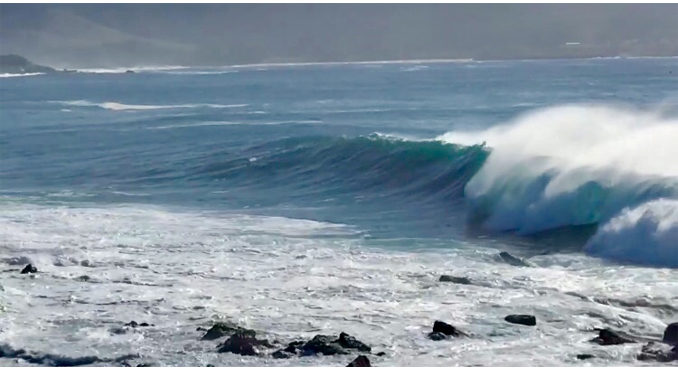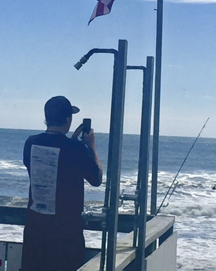
A Surfers Dilemma

If you’ve taken surf trips around the country and across the globe, you eventually return with a greater appreciation for our pristine beaches out east. Montauk’s breathtaking landscape, varied breaks and clean water are what keeps us paddling out as often as we can.
Encountering questionable surf spots due to contaminated water is an emotional experience wherever you are. You may be saddened by pollution, annoyed by those responsible, frustrated by your inability to change the situation, indecisive about whether surfing is worth it in those conditions, unsettled if you decide to surf, and disappointed if you choose to stay out of the water. Now we have chatter of Montauk having water quality issues, so we must use caution to minimize any hazards to your health during your surfing experience.
We spoke to our west coast friends that consistently worry about run-off and water quality, and the most common advice was to stay out of the water for at least 72 hours after a rainstorm. Logical, even if there are smoking waves, offshore winds and you have the break to yourself. Our Moroccan-based surf buddies always gargle with mouthwash before and after surfing; before keeps them mindful of trying not to swallow the water amidst a wipe out, and après surfing helps. Always wear your ear plugs (you should be anyway) and shower with soap and water as soon as you’re out of the water.
 Now the scary stuff. Water after a storm can make you sick if its teeming with lawn and vehicle run-off, wastes from all creatures, and various chemicals. Most of us forget that exposure to open wounds is just as bad as ingesting water that is contaminated. Some locals have reported eye, skin, sinus and gastrointestinal reactions, more severe cases involve respiratory and ear infections. We all want to think the water is cleaner than it actually is, and that the first storm of the season is much worse than the others that follow.
Now the scary stuff. Water after a storm can make you sick if its teeming with lawn and vehicle run-off, wastes from all creatures, and various chemicals. Most of us forget that exposure to open wounds is just as bad as ingesting water that is contaminated. Some locals have reported eye, skin, sinus and gastrointestinal reactions, more severe cases involve respiratory and ear infections. We all want to think the water is cleaner than it actually is, and that the first storm of the season is much worse than the others that follow.
Surfers are especially at risk, more so than the average beach-goer for developing an illness after playing in polluted water. Think of how much water is ingested after an average surf session, especially if you happen to fall off your board, duck dive and paddle through white water. All of that water funnels through the sinuses, almost ten times more than swimmers at the beach. Surfers are also at the beach and go in the water more often, all year long. Fall, winter and spring surfing out east all bring an abundance of rainfall, continuing the cycle of polluted run-off. And while many go to the beach and dip their feet in the water, surfers are all-in when it comes to being submerged in an environment that may be contaminated. Surf sessions are also lengthier so we have more time to be exposed to pollution.
Therein lies the problem. We have to be careful, we must be mindful, and begin to address the warning signs before we lose our pristine beaches and clean water around Montauk.

